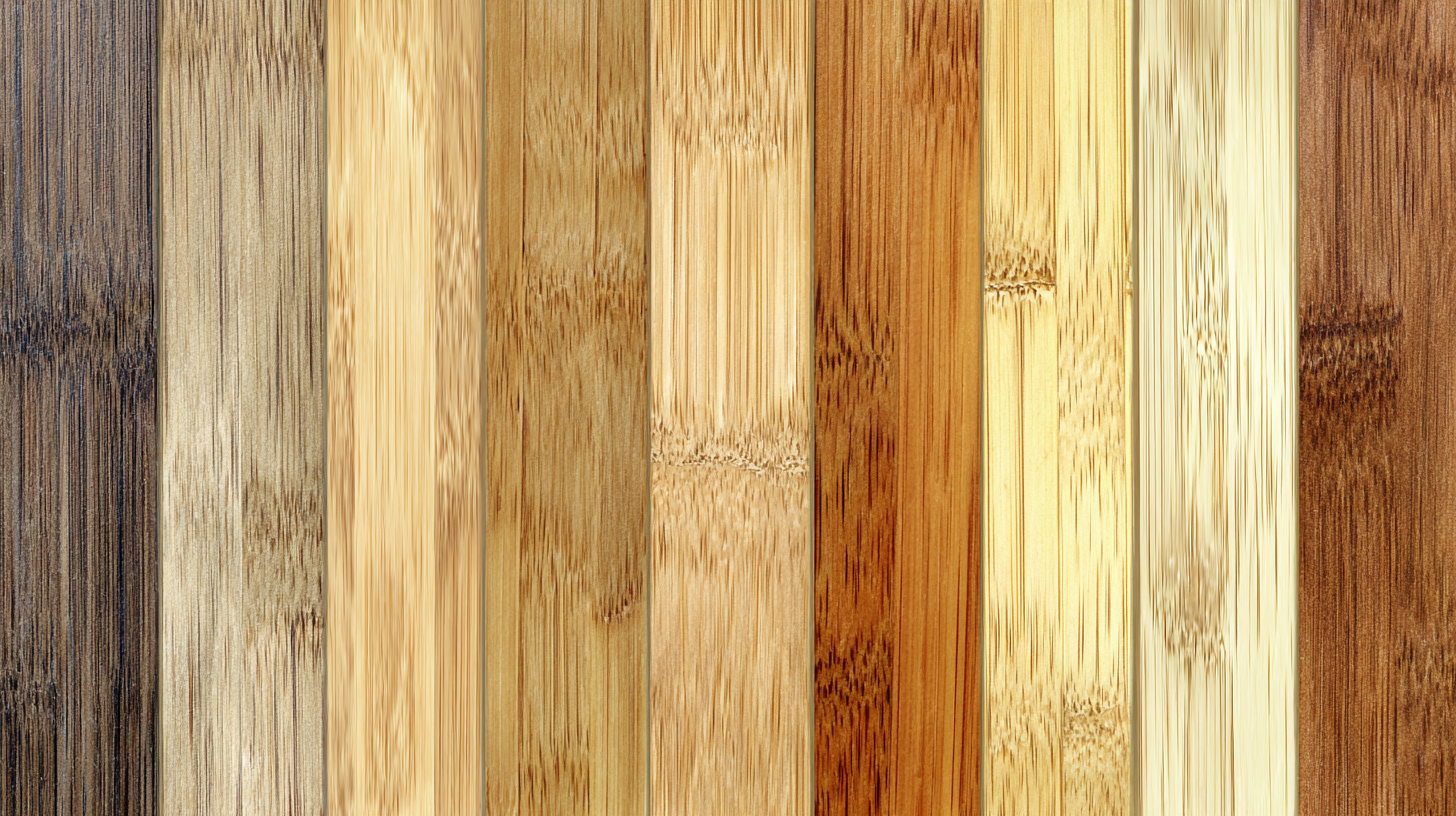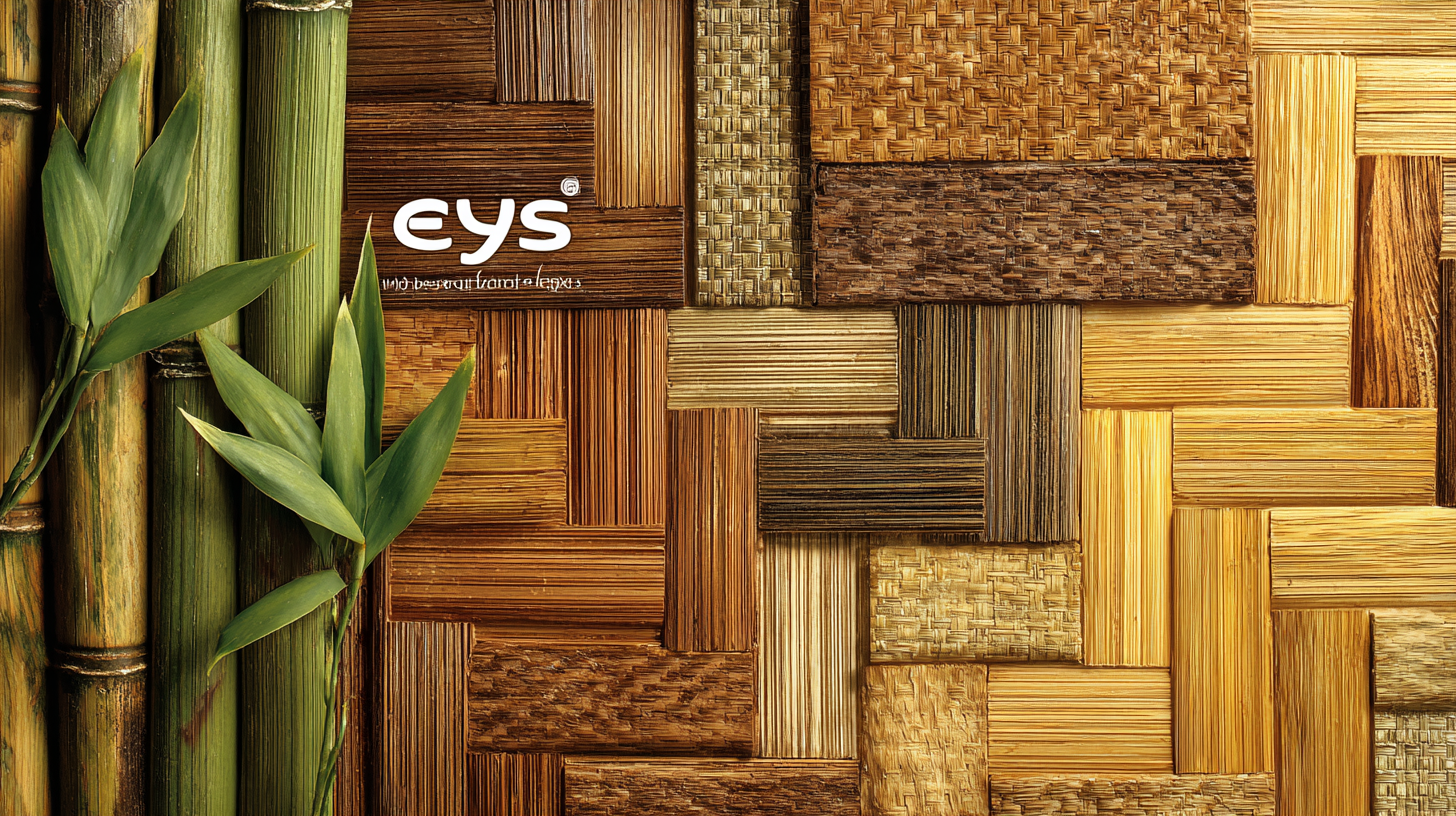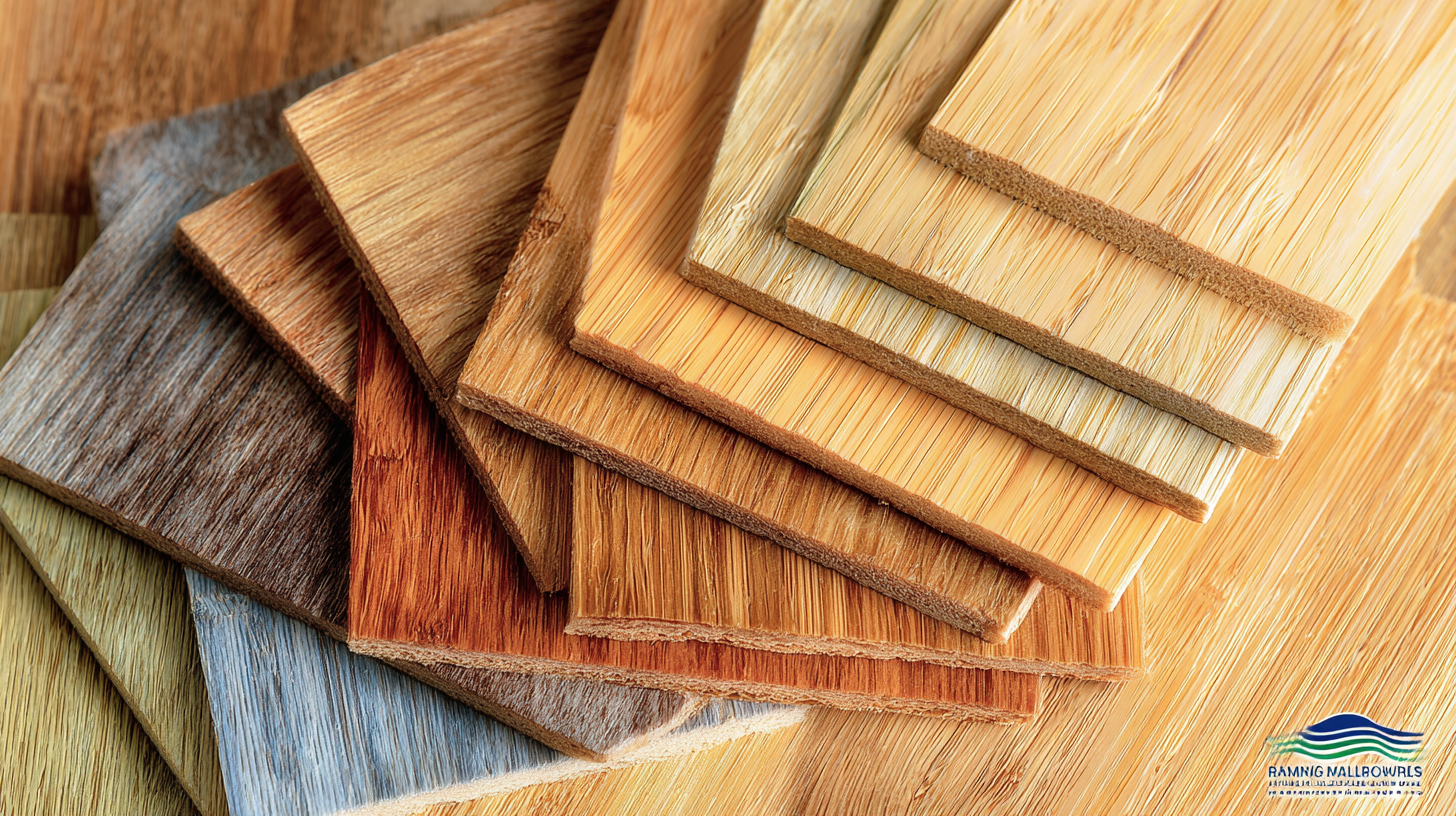Shandong Xiangying New Materials Technology Co., Ltd.
Shandong Xiangying New Materials Technology Co., Ltd.
In the quest for sustainable and aesthetically pleasing interior design solutions, Bamboo Wood Veneer Panels have emerged as a preferred choice for architects and designers alike. Known for their unique texture, durability, and eco-friendly attributes, these panels offer a versatile option for various applications, from furniture to wall coverings. However, the quality of Bamboo Wood Veneer Panels can greatly vary depending on the manufacturer. This guide aims to assist you in selecting the right manufacturer by providing a comprehensive comparison of different options available in the market. With a focus on “中国智造,全球热销,品质保证,” we will explore how Chinese manufacturing has gained global traction, ensuring not only quality but also cost-effectiveness. Join us as we delve into the critical factors you should consider when choosing the ideal Bamboo Wood Veneer Panels for your next project.

 Bamboo wood veneer panels are gaining popularity in various applications due to their unique properties and aesthetic appeal. The sustainable nature of bamboo makes it an eco-friendly choice for manufacturers and consumers alike. These panels offer a lightweight yet strong alternative to traditional hardwoods, making them ideal for furniture, cabinetry, and interior design projects. The natural beauty of bamboo, with its distinct textures and colors, adds a touch of elegance to any space while also promoting sustainability.
Bamboo wood veneer panels are gaining popularity in various applications due to their unique properties and aesthetic appeal. The sustainable nature of bamboo makes it an eco-friendly choice for manufacturers and consumers alike. These panels offer a lightweight yet strong alternative to traditional hardwoods, making them ideal for furniture, cabinetry, and interior design projects. The natural beauty of bamboo, with its distinct textures and colors, adds a touch of elegance to any space while also promoting sustainability.
In addition to their visual charm, bamboo wood veneer panels possess several key benefits. The cross-laminated structure enhances their durability and resistance to warping, making them suitable for a range of environments, including humid and high-traffic areas. This engineered wood product can withstand various stresses, providing long-lasting solutions for architects and builders. With their versatile applications and commitment to sustainability, bamboo wood veneer panels represent a compelling option for those looking to combine style with responsible choices in their design projects.
 When selecting a manufacturer for bamboo wood veneer panels, quality and sustainability should be at the forefront of your evaluation. Begin by assessing the manufacturer’s sourcing practices. Bamboo is a rapidly renewable resource, but not all suppliers adhere to sustainable harvesting methods. Look for certifications indicating responsible forestry practices, such as FSC (Forest Stewardship Council) certification, which ensures that the bamboo is sourced ethically and sustainably. This not only benefits the environment but also guarantees that you are receiving high-quality materials that stand the test of time.
When selecting a manufacturer for bamboo wood veneer panels, quality and sustainability should be at the forefront of your evaluation. Begin by assessing the manufacturer’s sourcing practices. Bamboo is a rapidly renewable resource, but not all suppliers adhere to sustainable harvesting methods. Look for certifications indicating responsible forestry practices, such as FSC (Forest Stewardship Council) certification, which ensures that the bamboo is sourced ethically and sustainably. This not only benefits the environment but also guarantees that you are receiving high-quality materials that stand the test of time.
Another crucial factor to consider is the manufacturer's production processes. Investigate their commitment to environmentally friendly practices, including the use of low-emission adhesives and non-toxic finishes. A manufacturer that employs state-of-the-art technology in its production line can ensure minimal waste and higher efficiency. Additionally, inquire about their quality control measures. Reliable manufacturers often provide transparency regarding their production standards and testing procedures, which can give you confidence in the durability and aesthetic appeal of their bamboo veneer panels.
In 2025, the veneer sheets market is projected to reach a remarkable value of USD 26.4 billion, with expectations to soar to USD 38.7 billion by 2035, driven by an increasing demand for decorative and sustainable wood finishes. As consumers and industries alike seek eco-friendly alternatives, bamboo wood veneer panels emerge as a compelling choice due to their aesthetic appeal and sustainability. With a growing emphasis on green building materials, selecting the right manufacturer becomes pivotal for ensuring quality and performance.
A comparative analysis of the top bamboo wood veneer panel providers reveals distinctive strengths and offerings. The bamboo products market alone is anticipated to grow from USD 82.50 billion in 2025 to an impressive USD 142.27 billion by 2035, with a consistent CAGR of 5.6%. This growth not only reflects an uptick in consumer preferences for bamboo but also signals opportunities for manufacturers to innovate and expand their product lines. By taking into account market trends and provider capabilities, stakeholders can make informed decisions that not only enhance their projects but also contribute positively to environmental sustainability.
As the demand for sustainable materials continues to rise, bamboo veneer has emerged as a leading choice for the construction and furniture industry. Innovations in bamboo veneer production have introduced transformative technologies that not only enhance the quality of the product but also address pressing environmental concerns. By utilizing advanced processing methods, manufacturers can produce veneers with improved durability and aesthetic appeal, making them suitable for a variety of applications.
When selecting a manufacturer for bamboo veneer panels, consider the integration of emerging technologies in their production processes. For instance, some manufacturers now employ environmentally friendly adhesives and finishes that reduce harmful emissions, ensuring a healthier living space. Additionally, look for producers who are adopting digital tools for precise cutting and shaping, which minimizes waste and maximizes efficiency.
Tips for choosing the right manufacturer include reviewing their certifications related to sustainable practices and examining customer testimonials about their product quality. It's also beneficial to inquire about their sourcing practices to ensure that the bamboo is harvested responsibly. By making informed choices, you can support innovative methods that contribute to a more sustainable future in the industry.
Choosing eco-friendly manufacturers for bamboo wood veneer panels is crucial for ensuring sustainable practices that benefit both the environment and your project’s longevity. Bamboo, known for its rapid growth and renewability, presents an excellent alternative to traditional wood. However, the sustainability of your product greatly depends on the practices of the manufacturer. To select the right supplier, it’s vital to investigate their sourcing methods, production processes, and commitments to environmental conservation.
Look for manufacturers that prioritize responsible harvesting techniques, ensuring that bamboo is sourced from sustainably managed forests. This includes practices that avoid deforestation and promote biodiversity. Additionally, consider companies that utilize eco-friendly adhesives and finishes, minimizing harmful chemicals often associated with conventional wood products.
By evaluating the certifications and environmental policies of potential manufacturers, you can make an informed decision that supports long-term ecological balance and aligns with your commitment to sustainability. Ultimately, partnering with the right eco-conscious manufacturer not only enhances your project’s environmental footprint but also promotes a market that values and supports green initiatives.
